






We knew that to achieve our ambitions in the Local Skills Improvement Plan (LSIP), we had to work together.
This publication shows that, in the space of a few months, we have already made great progress towards much of the activity set out in the LSIP Road Map. There are no fewer than 31 actions in the Road Map and we knew that not all of them would be achievable in the short term.
However, we have surprised ourselves by how much we have achieved already, and much of this is down to positive collaboration, a genuine desire by organisations to serve their business communities and residents and, of course, sheer hard work.
We aim to showcase the activities of partners involved in the Local Skills Improvement Fund (LSIF) and illustrate how these achievements align with the objectives outlined in the LSIP Road Map, which was published in 2023. This document serves as a snapshot of our progress in implementing the LSIP.

This booklet highlights key activities currently underway and their positive effects on both local businesses and residents. Importantly, the content extends beyond the LSIF partnership, recognising and spotlighting the collaborative efforts of other partners and stakeholders – all of whom are as committed as we are to achieve the ambitions set out in the LSIP.
Our collective vision is rooted in a commitment to enhance skills provision for adults, focusing on making it more employer-centred, technologically and sustainably focussed and linked to the skills needs of the local economy.
The Local Skills Improvement Fund (LSIF) has been launched by the Department for Education (DfE) to provide resources to support transformational activity responding to LSIP priorities. LSIF will be delivered between October 2023 and March 2025. DfE have made available up to £2.5m with 76% of it capital funds.
LSIF is intended to build on the Strategic Development Fund (SDF), with a focus on collaboration and partnership working.
During 2022-2023 a partnership comprising ten York and North Yorkshire FE providers (led by York College) accessed the SDF to invest in new equipment, employer engagement and staff development; building capacity and new courses to meet local needs. Considerable learning came out of this activity that influenced the proposed approach for LSIF.
• More meaningful, collaborative and longterm relationships to be built between employers of all sizes and providers, extending the numbers active in developing provision and investing resources to maximise impact.


• Support people to use their transferable skills to secure jobs in priority sectors.
• Develop new provision accessible to small and micro-businesses.
• Ensure the modes of provision of training meet business need.
Help businesses and providers to embed sustainable practices at a practical level.
Increase career advice, information and guidance for all ages to build and retain
• Prioritise accessible technical and digital skills development at all ages.
• Increase apprenticeships (especially higher and degree apprenticeships where there is demand).


• York College and University Centre
• Askham Bryan College
• Craven College
• Darlington College
• Harrogate College
• York and North Yorkshire Combined Authority
• City of York Council
• North Yorkshire Council
• University of York
• York St John University

• Scarborough TEC
• Selby College
• York Learning
• North Yorkshire Adult Learning and Skills Service
• Yorkshire Learning Providers



• CU Scarborough
• Yorkshire and Humber Institute of Technology
• West and North Yorkshire Chamber of Commerce



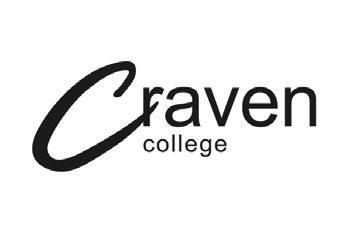













To enable employers and individuals to access the technical skills they need to increase productivity, respond to change and adapt to emerging technology in our key sectors.

DIGITAL AND TECHNOLOGY

CONSTRUCTION



HEALTH AND SOCIAL CARE
There are also seven cross-cutting themes which underpin the LSIF priorities including:
Low carbon
Innovation
Green skills
Emerging technology
Rurality
Collaboration
Transferable skills

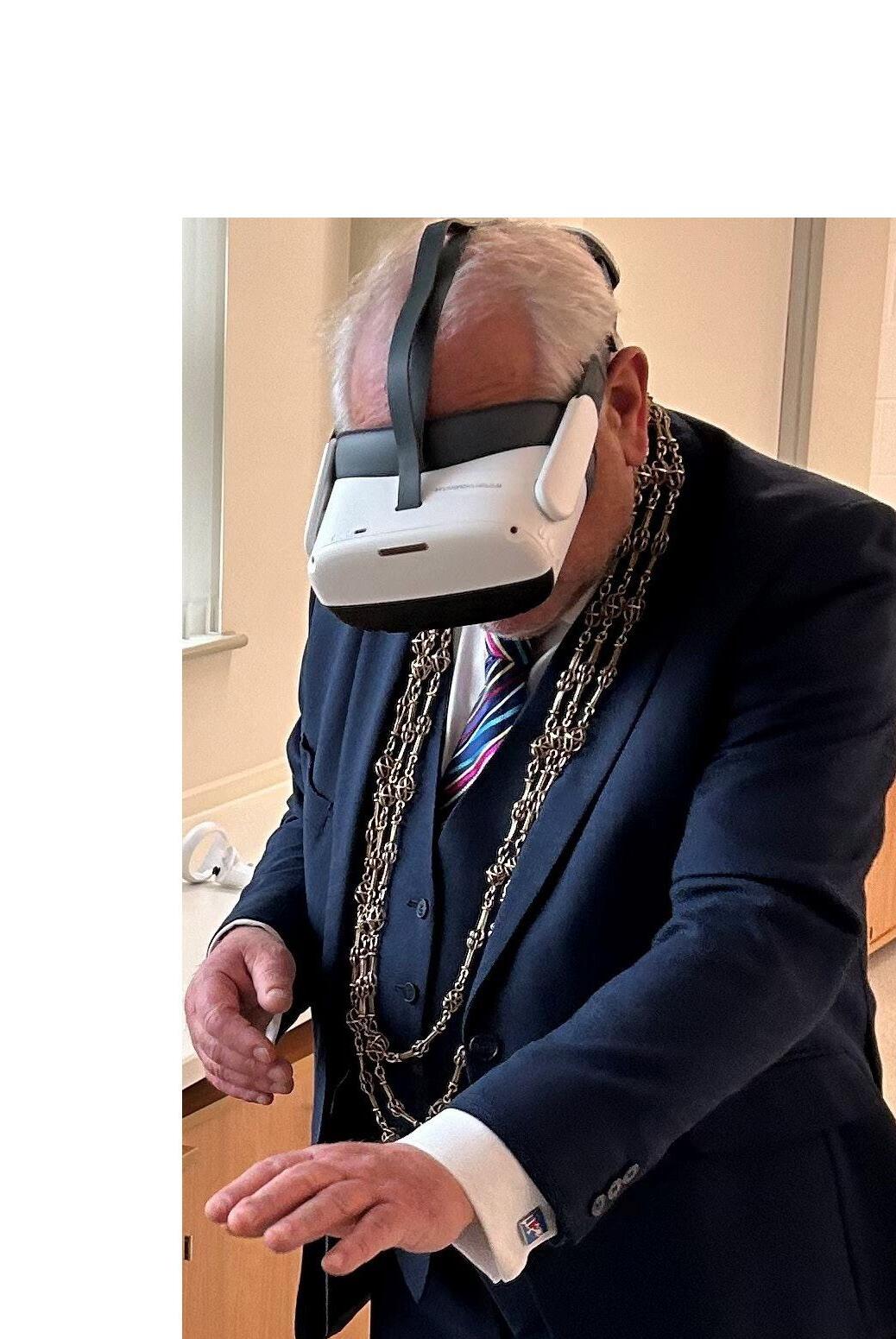 The Lord Mayor of York, Revd. Christopher Cullwick gets to grips with a Virtual Reality (VR) headset
The Lord Mayor of York, Revd. Christopher Cullwick gets to grips with a Virtual Reality (VR) headset
Accounts for 7% of all jobs in the area
Requirement for skills in LOW CARBON, SUSTAINABLE TECHNIQUES AND RETROFIT across the sector
Annually
5,360 required roles for recruitment
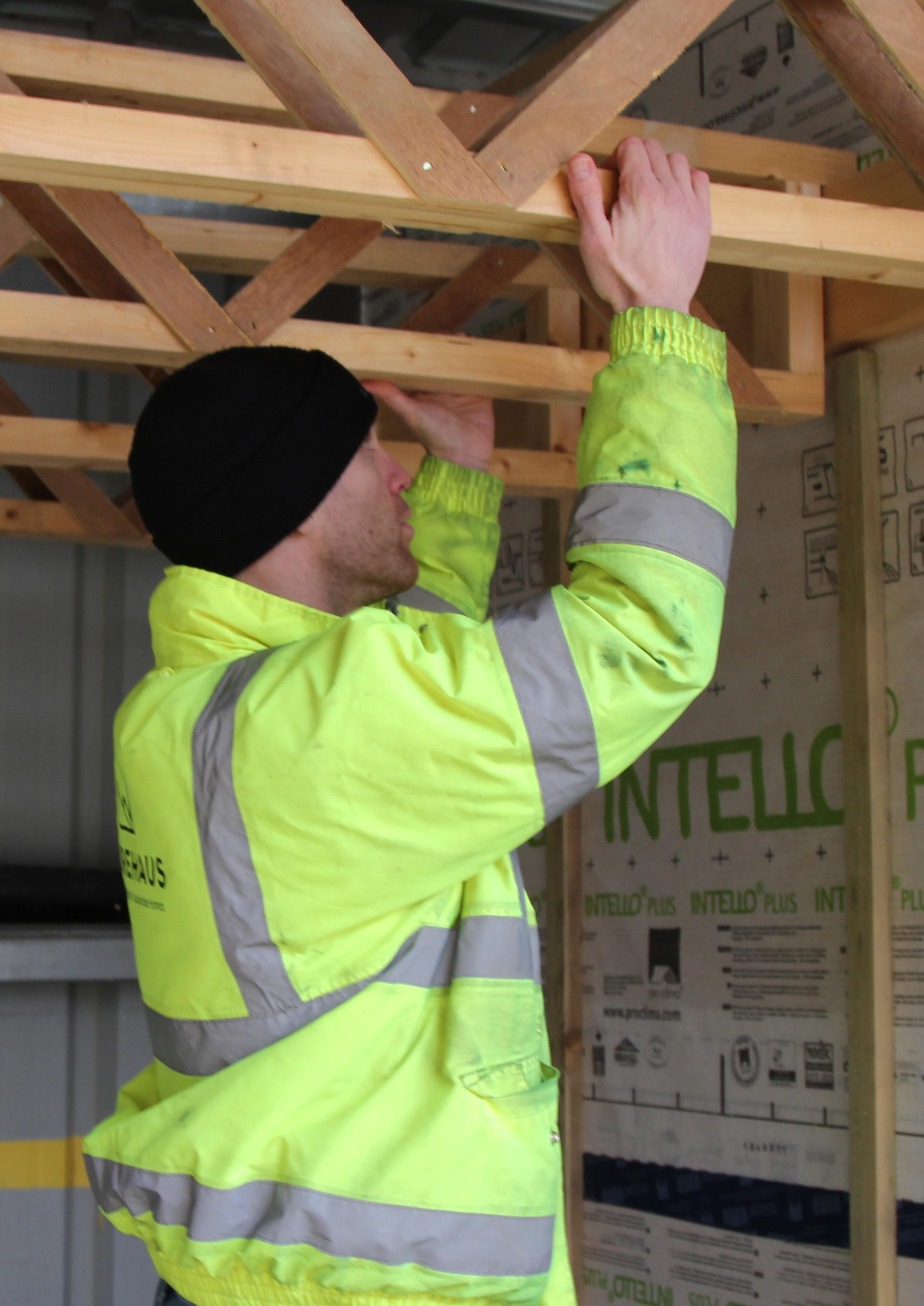

Accounts for 4x the national rate of agricultural jobs
The agri-skills sector is broad and includes newly emerging technologies to combat food insecurity due to global conflict and climate change, as well as a rise in food consumption due to population growth.
Innovative approaches to food production such as vertical farming, as well as the use of technology to increase yield, reduce use of pesticides and fertiliser, and remote sensing to provide round the clock data on crops and livestock, also come with the need for new skills.

33,000 people in North Yorkshire work in agriculture and food manufacturing


Businesses cite HIGHER LEVEL DIGITAL as a key skills demand in the area
The digital sector has been the fastest growing part of the labour market in recent years and all indications are that this will continue. Businesses highlight two principal areas of skills demand – essential skills and higher-level digital skills. Businesses tell us that they want all employees to have a solid grasp of digital skills that are needed to work in modern workplaces and secondly, that they have access to people with high level technical skills which will help the businesses flourish in a digital world in a variety of ways.
Digital represents the FASTEST GROWING part of the labour market
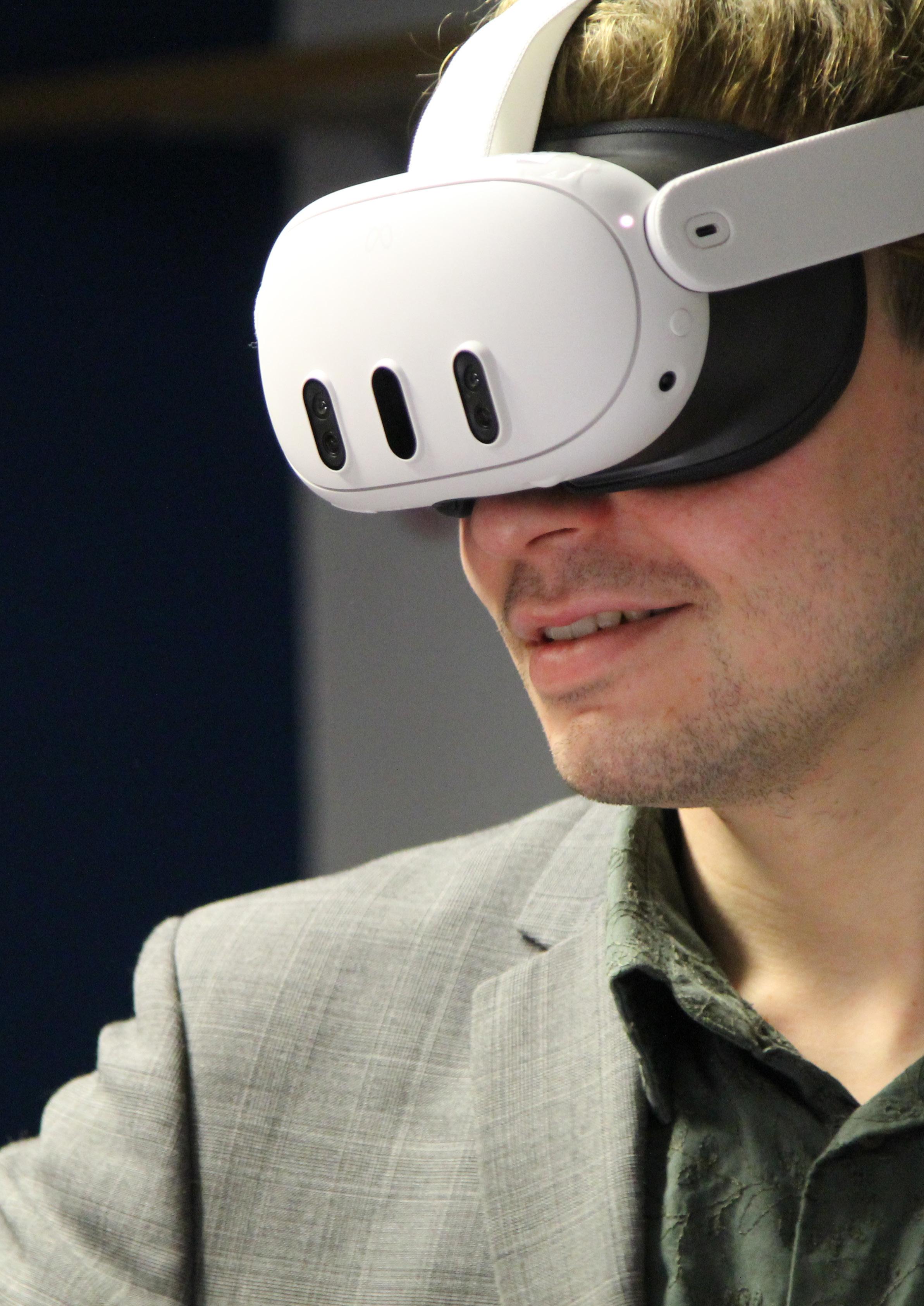
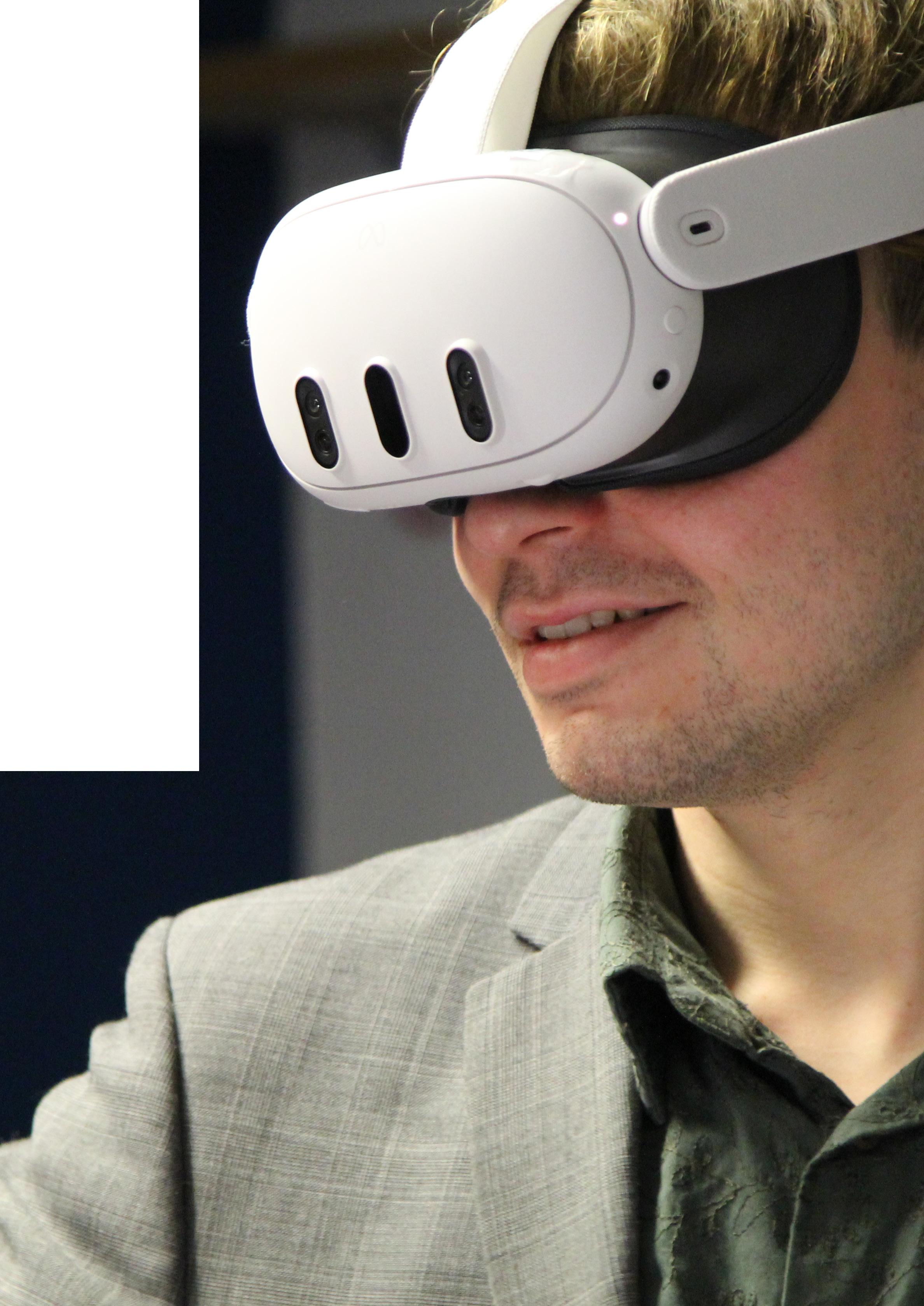
Employment trends point to INCREASED DEMAND
for skilled staff in this sector
This sector has been a big focus for LSIF.
Jobs in the health and social care sector commonly top the list of most wanted in the area. Occupations in the highest demand are care workers, home carers, registered nurses and nursing auxiliaries.
It is therefore critical that colleges and training providers are able to upskill people for jobs in this sector using the latest technology.
Health and social care makes up
13% of the workforce
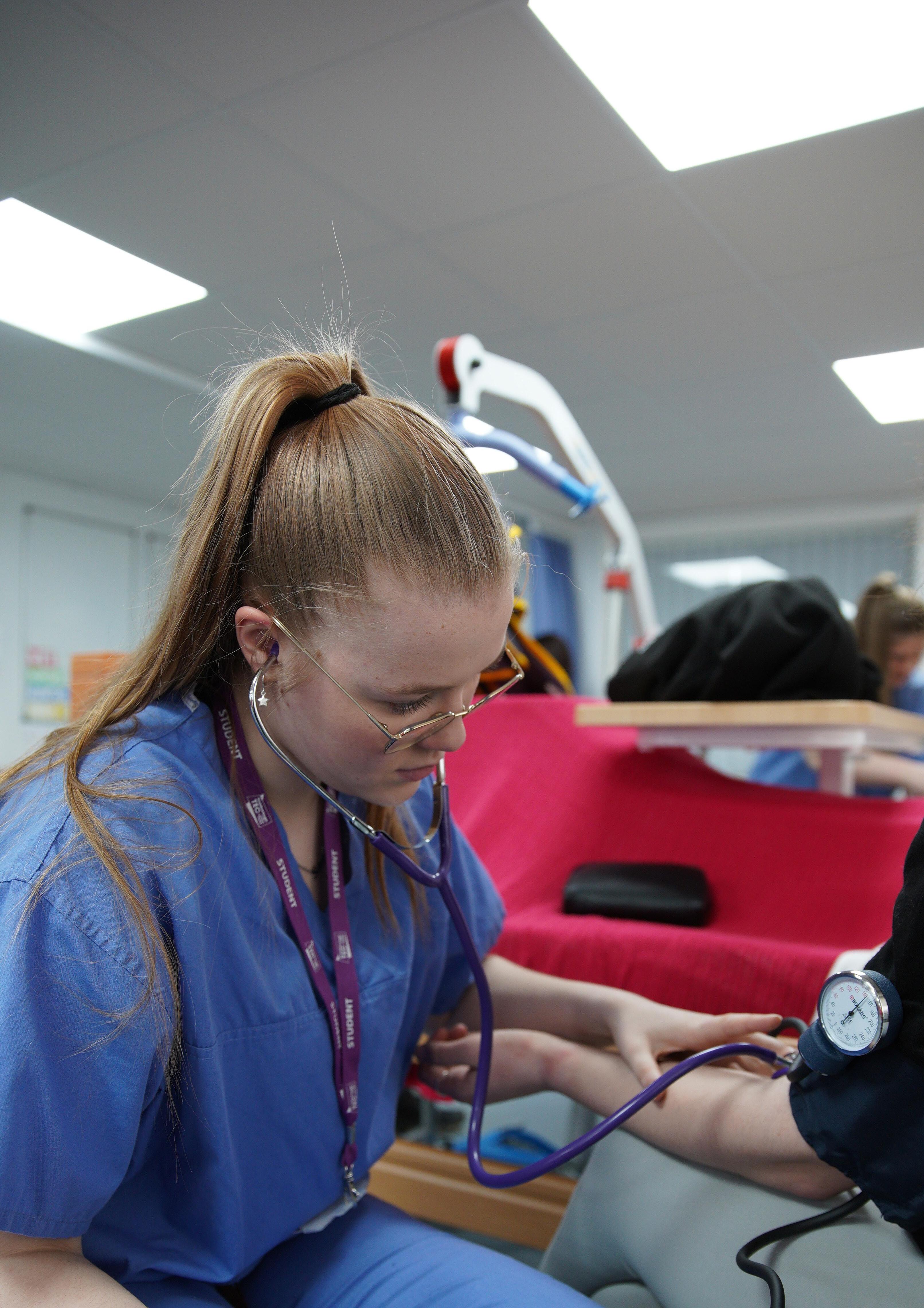



Sector accounts for 10% of the workforce in the area
Prevalent sub sectors include FOOD MANUFACTURE, TRANSPORT AND RAIL
Need for skills providers to have access to INDUSTRY STANDARD EQUIPMENT



The tourism industry employs 41,200 people in the local area
Domestic visitors add more than £1.5BILLION every year to the North Yorkshire economy

Tourism makes up 10% of the entire local economy

Digital Futures Winner of the Green Gown Awards
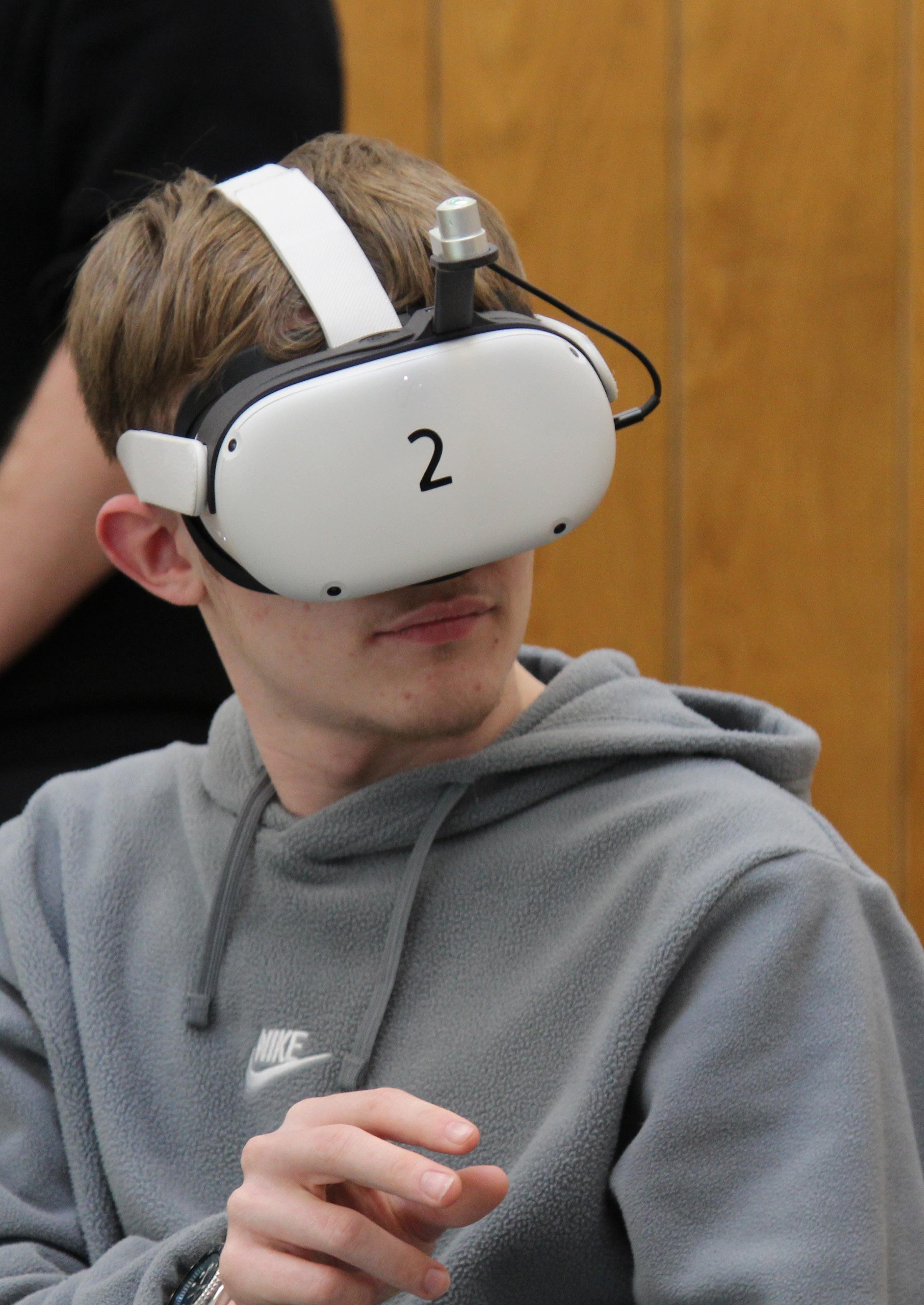
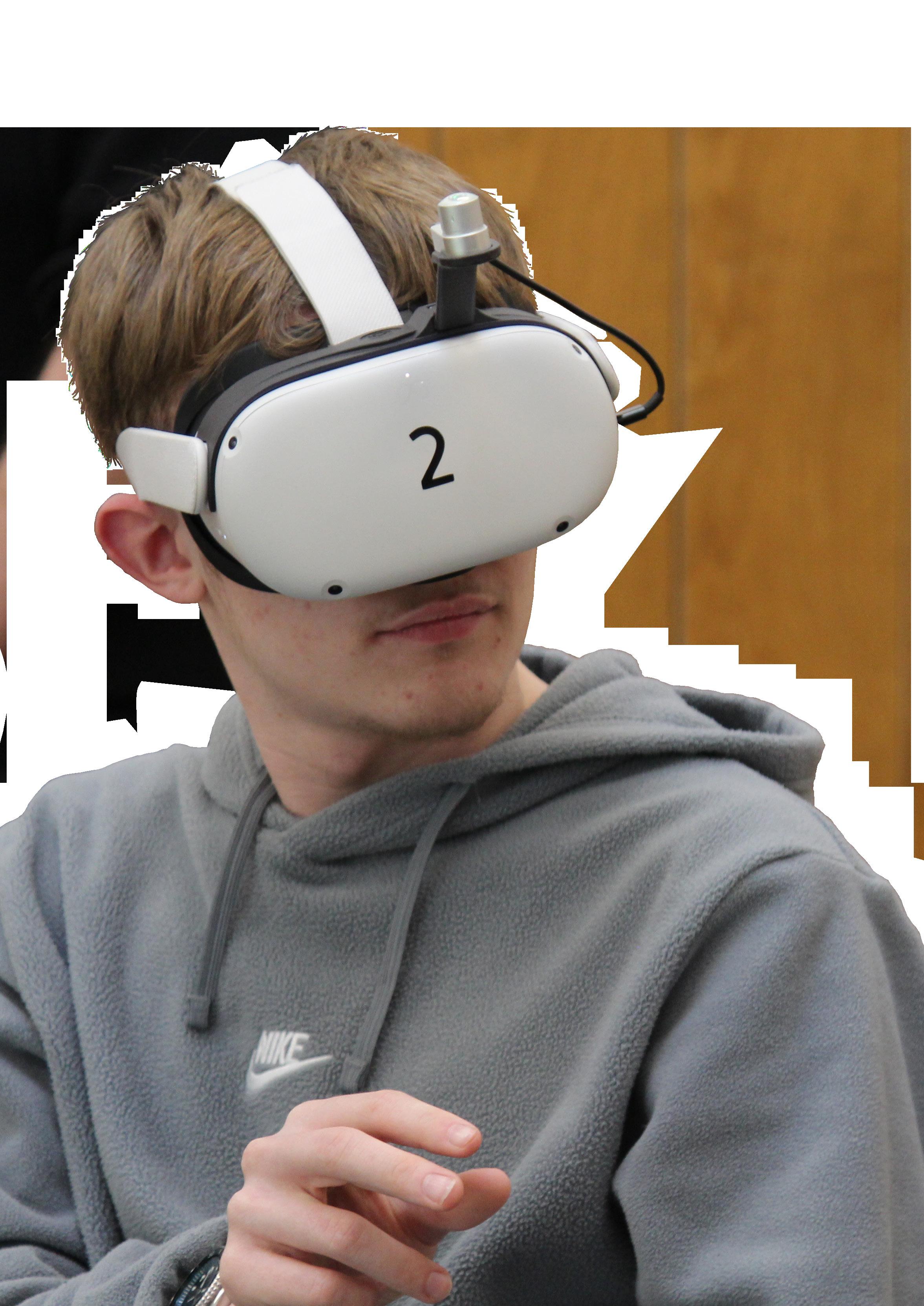
Askham Bryan College is taking significant strides in integrating digital technology into its curriculum, leveraging the investment from the Strategic Development Fund (SDF) to embrace drones and remote sensing technologies. This initiative demonstrated the versatility of tech across various sectors. Building on this, the college has utilised the Local Skills Improvement Fund (LSIF) to incorporate a range of digital and automated tools into our courses. The goal is to digitalise our curriculum offerings, equipping students with insights into how technology will revolutionise their future professions and inject innovative ideas into the local job market, aligning nicely to the Local Skills Improvement Plan (LSIP).
Key innovations include the introduction of a Farmbot that automates seeding, weeding and watering, providing hands-on experience with robotics, automation, and machine learning. This not only showcases the application of technology in specific curriculum areas but also its transferability.



LSIP PRIORITIES MET:
• Enable employers and individuals to access the technical skills they need to increase productivity.
• Review existing provision to ensure that courses reflect progress in technology and reduces carbon emissions.
• Ensure ‘green’ modules are added to existing qualifications in priority sectors.
PRIORITY SECTORS:
• Agri-skills
• Digtial and technology CROSS CUTTING THEMES:
• Low carbon
• Innovation
• Green skills
• Emerging technology

Craven College delivers Skills Bootcamps in the Green Skills Sector, focusing on Forestry, Arboriculture and the Safe Handling and Application of Pesticides courses. There is a shortage of qualified people in these sectors which prevents businesses from completing essential work.
Businesses that have participated in the Skills Bootcamps at Craven College have said that they have seen an increase in staff performance, created a more flexible workforce, lowered insurance premiums and enabled them to bid for contract work with larger organisations.
Self-employed learners have gained extra skills and qualifications, allowing them to diversify or expand their existing business.
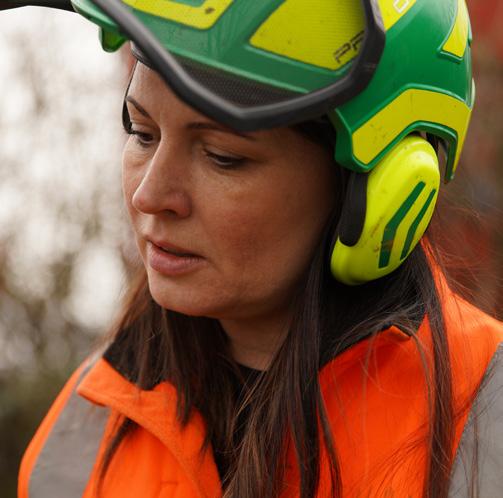
LSIP PRIORITIES MET:
• Enable people from all backgrounds to access skills provision.
• Increase Skills Bootcamp style provision.
• Develop new provision aimed at small and micro-businesses.
• Focus on skills related to occupations in the highest demand.
PRIORITY SECTORS:
• Agri-skills
• Health and social care
• Digital and technology
CROSS CUTTING THEMES:
• Low carbon
• Innovation
• Emerging technology
• Green skills


“
I’ve recently moved into tree surgery and arboriculture and as I’m self-employed and subcontracting myself out to companies, having the opportunity to come onto a Bootcamp meant I could step into the new career I wanted.
Joe, Bootcamp student“
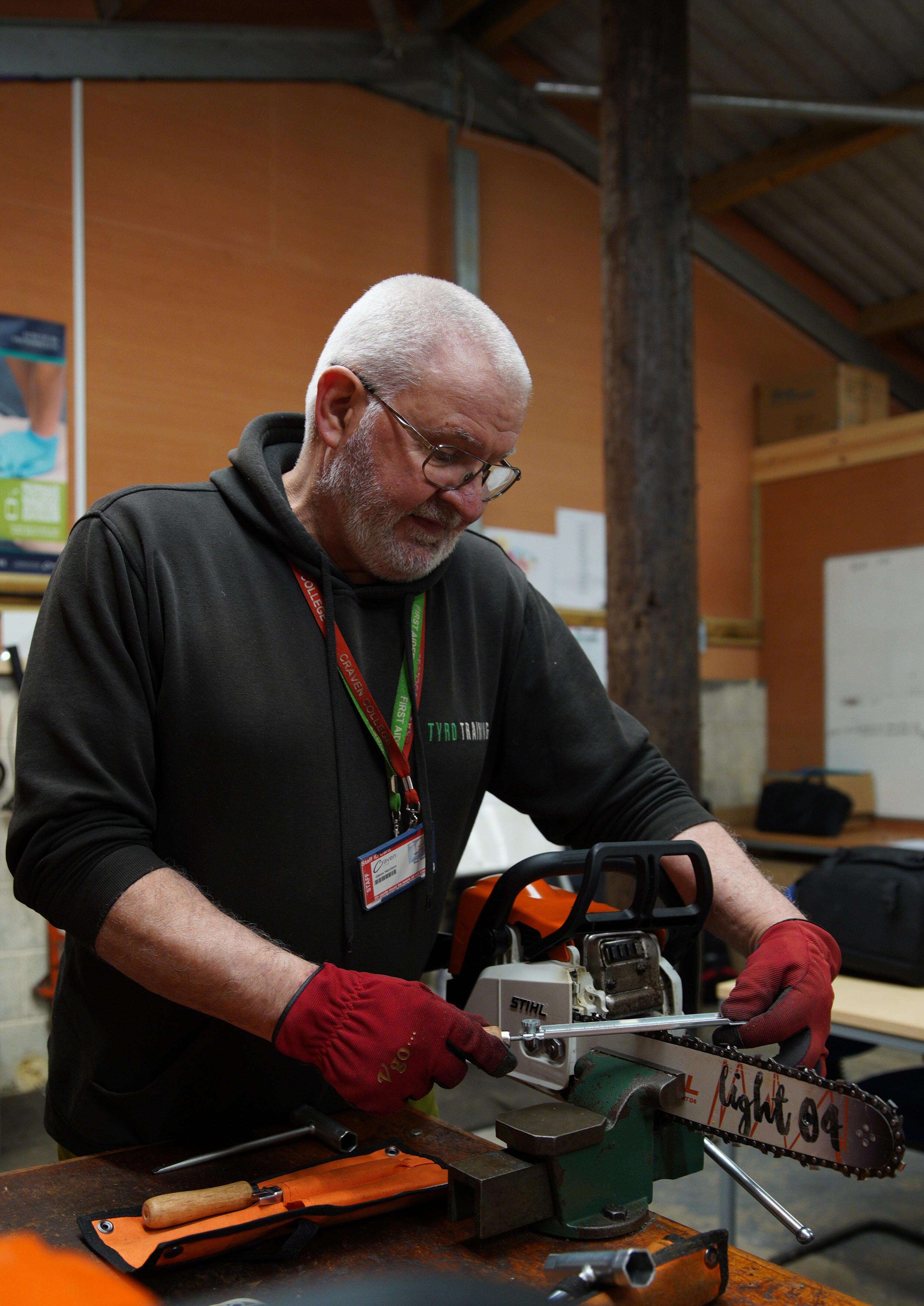
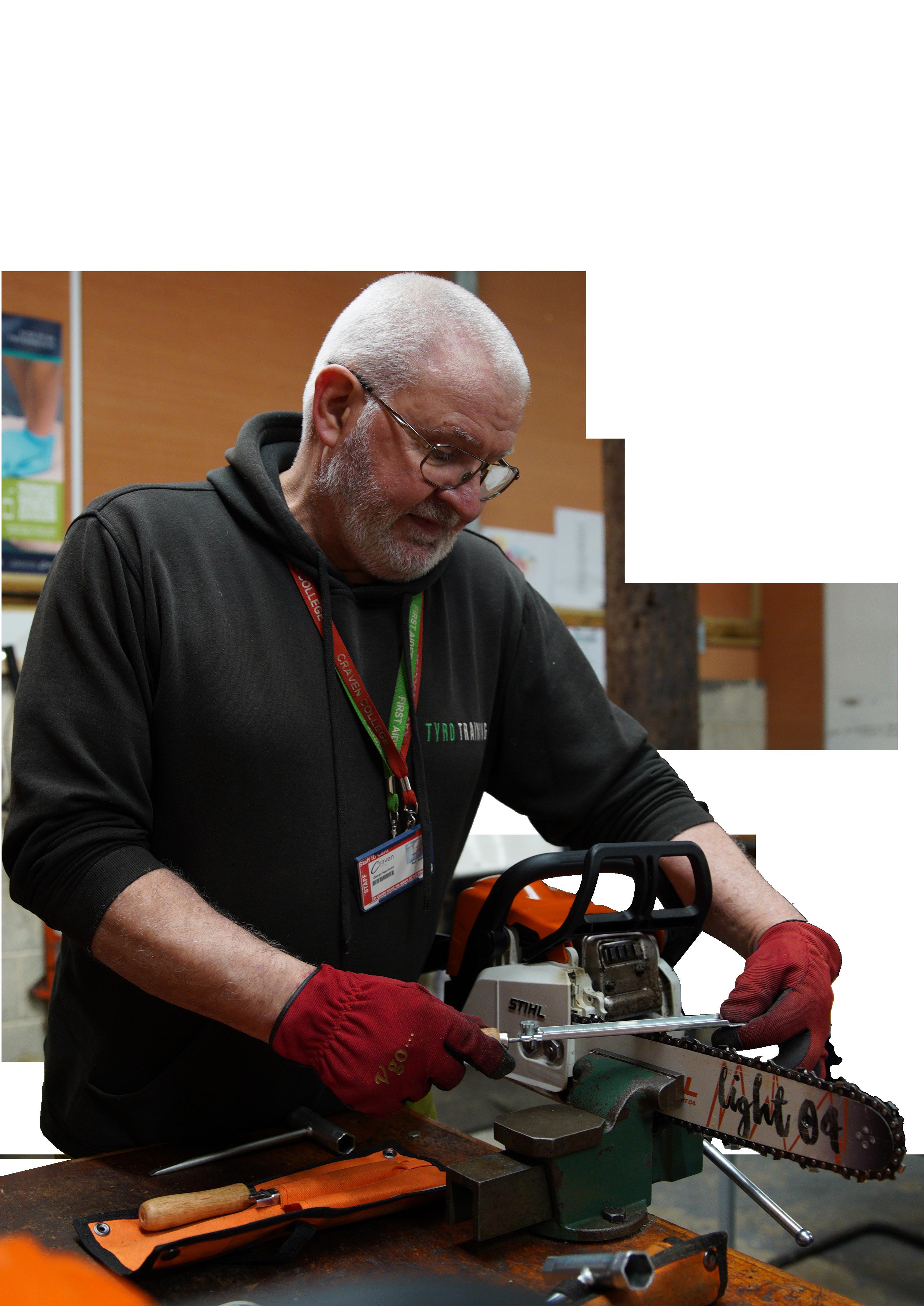

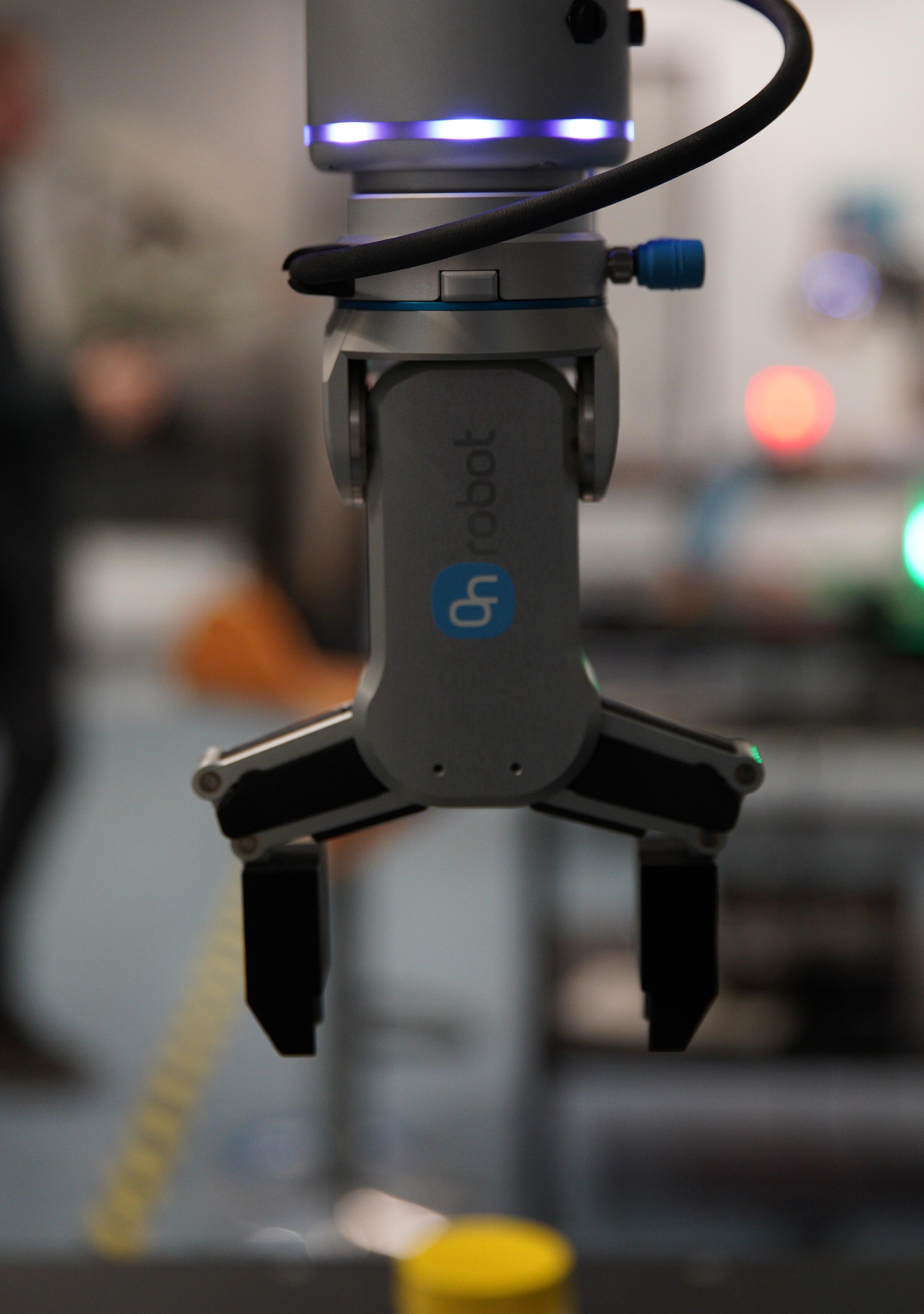
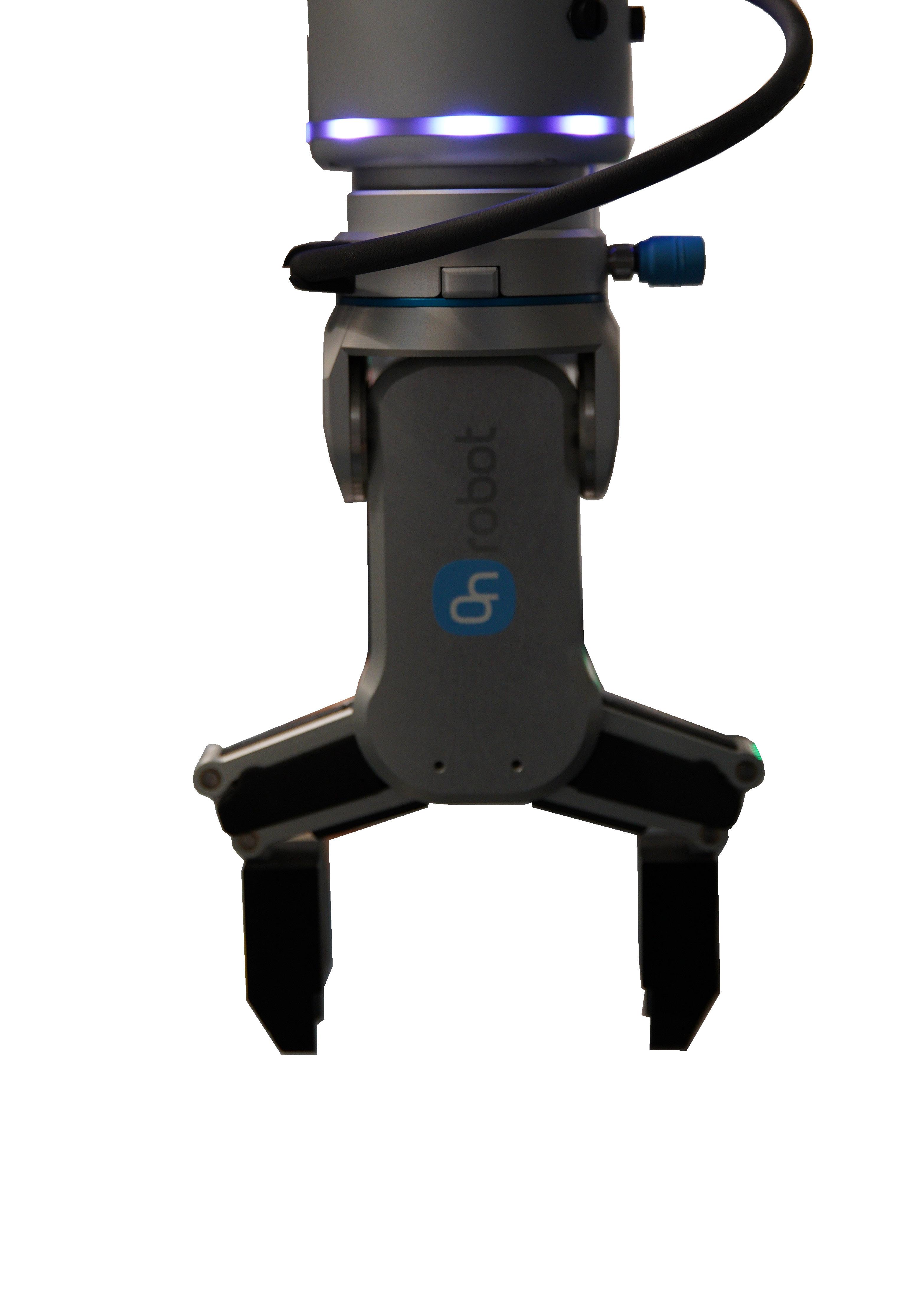
Darlington College is actively addressing the local demand for digital skills through a multi-faceted approach. Complementing recent investments in virtual reality (VR) and immersive facilities, the college is expanding its training offer in virtual environments. Collaborating with various local colleges and training providers, Darlington College is spearheading the advancement of this technology across diverse sectors, including health and social care and retrofitting.
By bridging training between traditional 2D and cutting-edge 3D computer-aided design (CAD) with VR Design environments and holographic design, Darlington College is integrating required future skills into its curriculum offer. The college is also pioneering modern construction methods through the adoption of 3D printing technology, aimed at streamlining construction projects and reducing labour costs by interpreting digital designs and making them in to tangible buildings.

LSIP PRIORITIES MET:
• Enable employers and individuals to access the technical skills they need to increase productivity, respond to change and adapt to emerging technology in key sectors.
• Review existing provision to ensure that courses reflect progress in technology and reduces carbon emissions.
• Focus on skills related to occupations in the highest demand.
PRIORITY SECTORS:
• Digital and technology
• Construction
• Engineering and advanced manufacturing
CROSS CUTTING THEMES:
• Low carbon
• Innovation
• Green skills
• Emerging technology


At North Yorkshire Adult Learning and Skills Service we are acutely aware of the challenges surrounding learning engagement, participation and progression of adults and of young people with Special Educational Needs and Disabilities (SEND). These challenges become even more acute when the leap to Level 3 entrance is added in. Engagement in LSIF allowed the service to use funding to build a strong pipeline of engagement to overcome these barriers.
Funds will support us to work in the community to remove the fear of learning through practical activities delivered on learners own terms and through experiential understanding of digital technologies and the breadth of opportunity available within the health and social care sectors. Funding provided will increase access to learning through investment in broadcast quality information technology (IT) equipment that coupled with conferencing equipment will make remote learning more inclusive for our rural communities. We have invested in VR to be used both in class and also in rural communities.

LSIP PRIORITIES MET:
• CPD for employees based in the education sector to enable them to keep up with technological developments.
• Enable people from all backgrounds to access provision.
• Initiaitves to attract and retain women in STEM and people over 50 to keep talent in the workforce.
PRIORITY SECTORS:
• Digital and technology
• Health and social care
CROSS CUTTING THEMES:
• Rurality
• Collaboration
• Emerging technology



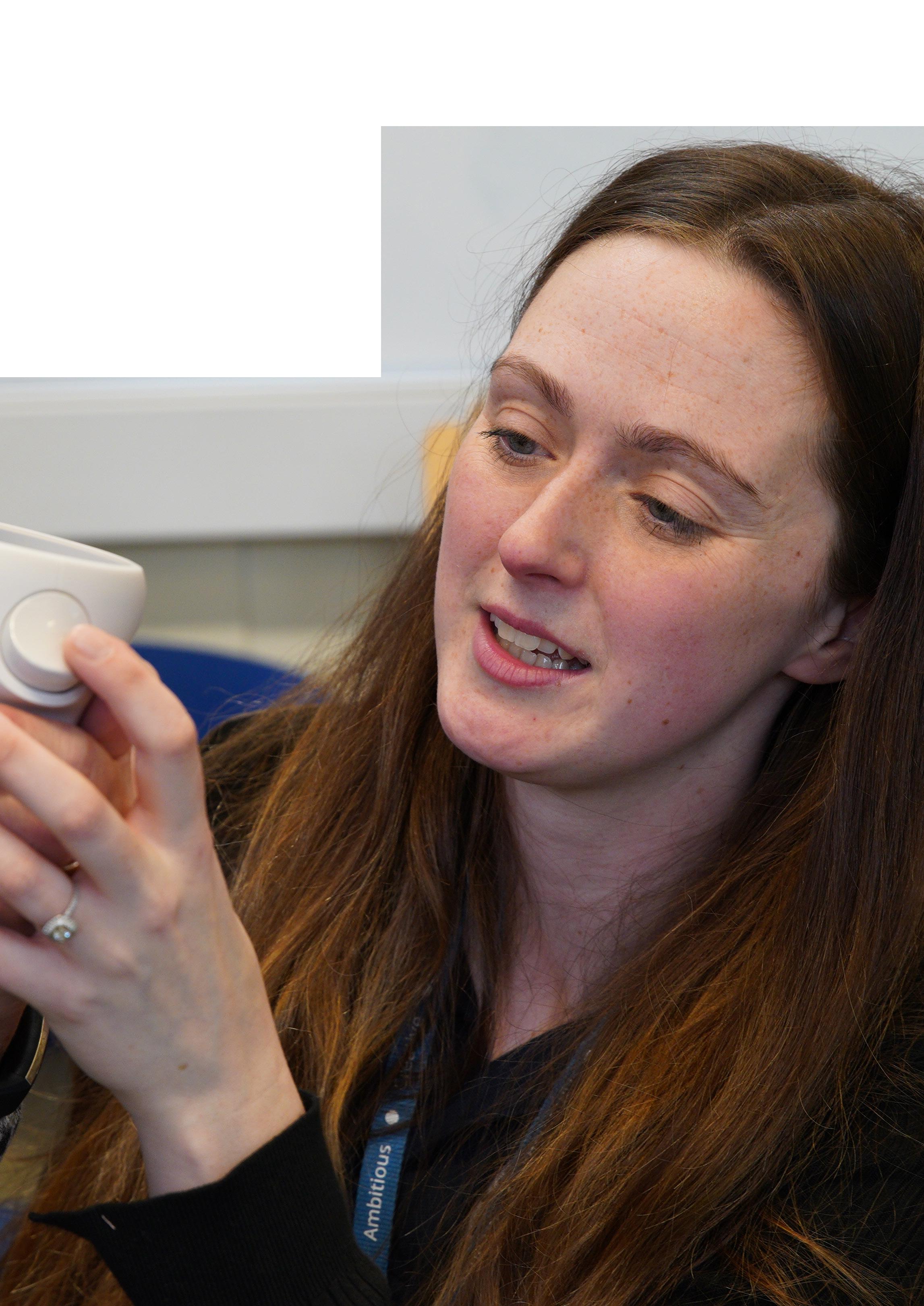
The VR headsets are so simple to use and they’re helping our more vulnerable learners to practice real life scenarios in a safe environment.
I feel the course was very informative and useful. The mixture of classroom theory and practical demonstration was beneficial. The set-up enabled other participants to discuss their real world scenarios which was interesting to hear.
Student on the Skills Bootcamp


Harrogate College invested in a Passive Haus Pod for their recent six-week Skills Bootcamp. The course enabled adults to gain further knowledge and skills within the Passive House / Retrofitting aspect of house renovation and construction.
Students were able to use the Passive Haus Pod and work stations to learn and use retrofit techniques in an authentic Passive Haus environment. Over the six-week course students explored construction processes for energyefficient buildings, and identified insights into cost-effective solutions for enhancing retrofit practices.
Utilising artficial intelligence (AI) technology in learning has been ground-breaking at Harrogate College. The recent purchase of a Nursing Ann interactive manikin has supported health and social care students in their practice and developed learners’ confidence before going into work placements.
The Nursing Ann uses AI technology to replicate patient vital signs, it allows students to identify, diagnose and administer practices including tube insertion, medical administration, IV training and urinary care. The incorporation of the Nursing Ann has supported students in further excelling in patient care and safety and is now an essential part of training in our courses.
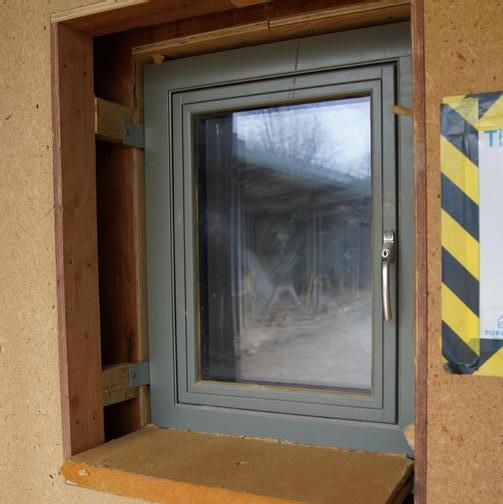
LSIP PRIORITIES MET:
• Enable employers and individuals to access the technical skills they need to increase productivity, respond to change and adapt to emerging technology in key sectors.
• Review existing provision to ensure that courses reflect progress in technology and reduces carbon emissions.
• Focus on skills related to occupations in the highest demand.
PRIORITY SECTORS:

• Digital and technology
• Construction
• Health and social care
CROSS CUTTING THEMES:
• Transferable skills
• Innovation
• Low carbon
• Green skills
• Emerging technology


Scarborough TEC has upgraded its hospital training ward with up-to-date resources such as interactive manikins, industry standard beds and simulation equipment for treating patients. The enhancement of this ward and introduction of these resources will enable Scarborough TEC to provide short courses to local care homes in areas such as patient handling, communications and first aid.
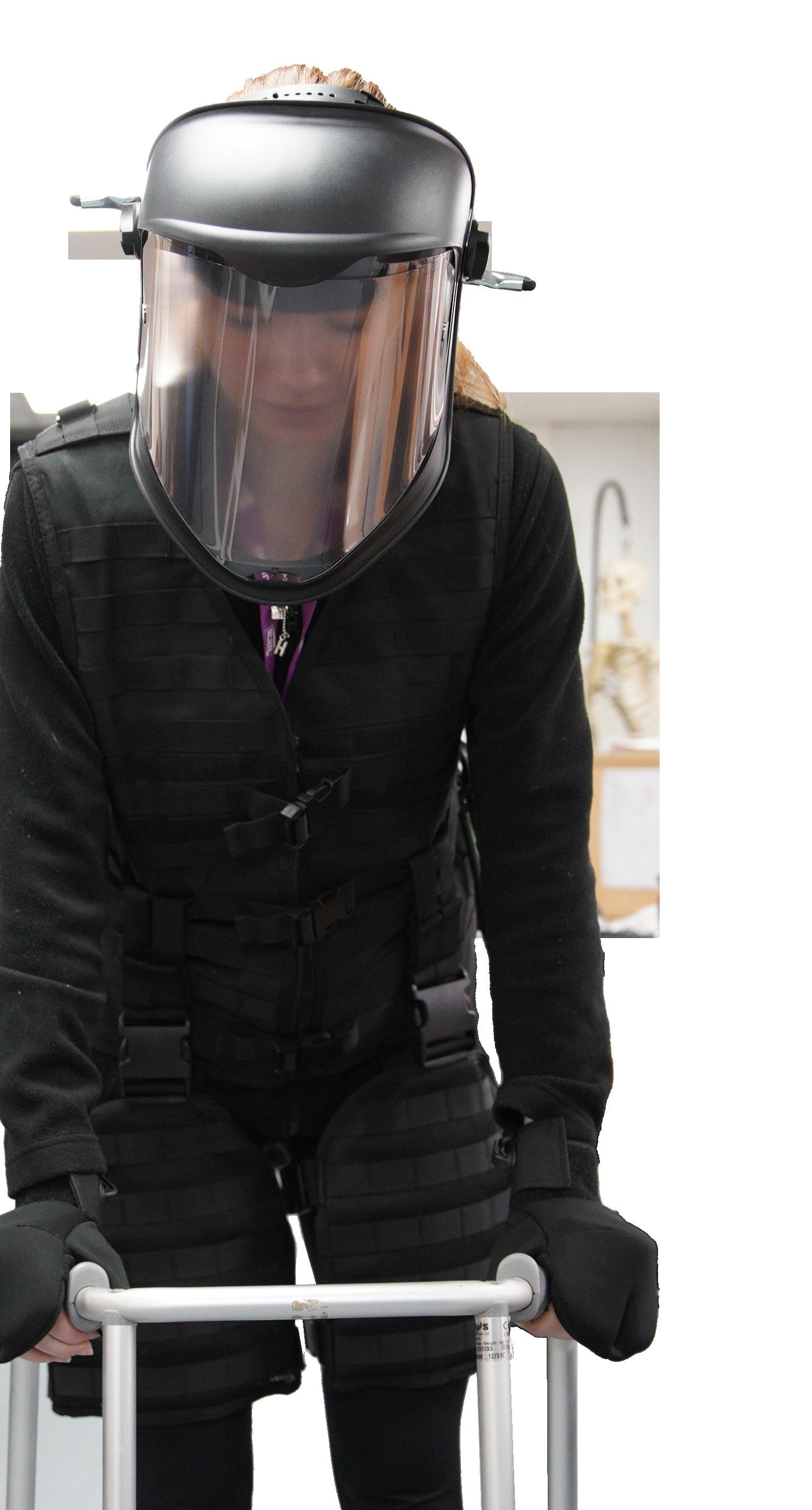
The resources will also further enhance its full time study programmes such as the T Level in Health by allowing students to work through multiple patient scenarios on the interactive manikins in a safe environment, allowing them to gain valuable experience before going out
For the digital elements of the project
Scarborough TEC has purchased 30 VR headsets and interactive software that will cover subject areas such as construction, engineering and health and social care. These resources will be available to use in classrooms across a wide variety of
LSIP PRIORITIES MET:
• Enable employers and individuals to access the technical skills they need to increase productivity, respond to change and adapt to emerging technology in key sectors.
• Review existing provision to ensure that courses reflect progress in technology and reduces carbon emissions.
• Focus on skills related to occupations in the highest demand.
PRIORITY SECTORS:
• Digital and technology
• Construction
• Engineering and advanced manufacturing
CROSS CUTTING THEMES:
• Collaboration
• Innovation
• Emerging technology
curriculum areas, allowing students to work through potentially dangerous scenarios and gain confidence in a safe manner before going out to experience these situations in the real world.
The second part of the digital project will see the construction and introduction of a fully immersive room installed at the college.
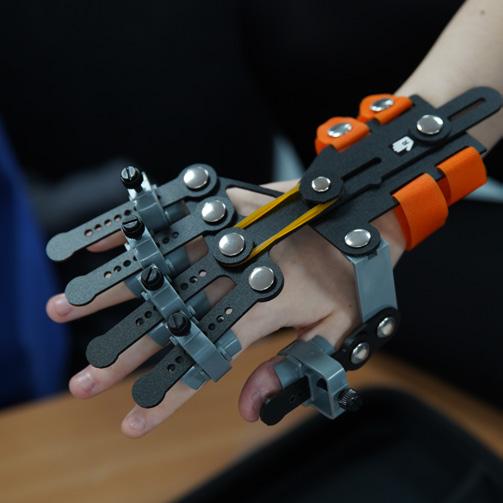

The social care sector commonly tops the list of most wanted jobs in the area. It is critical that colleges and training providers are able to up-skill people for jobs in this sector using the latest technology.

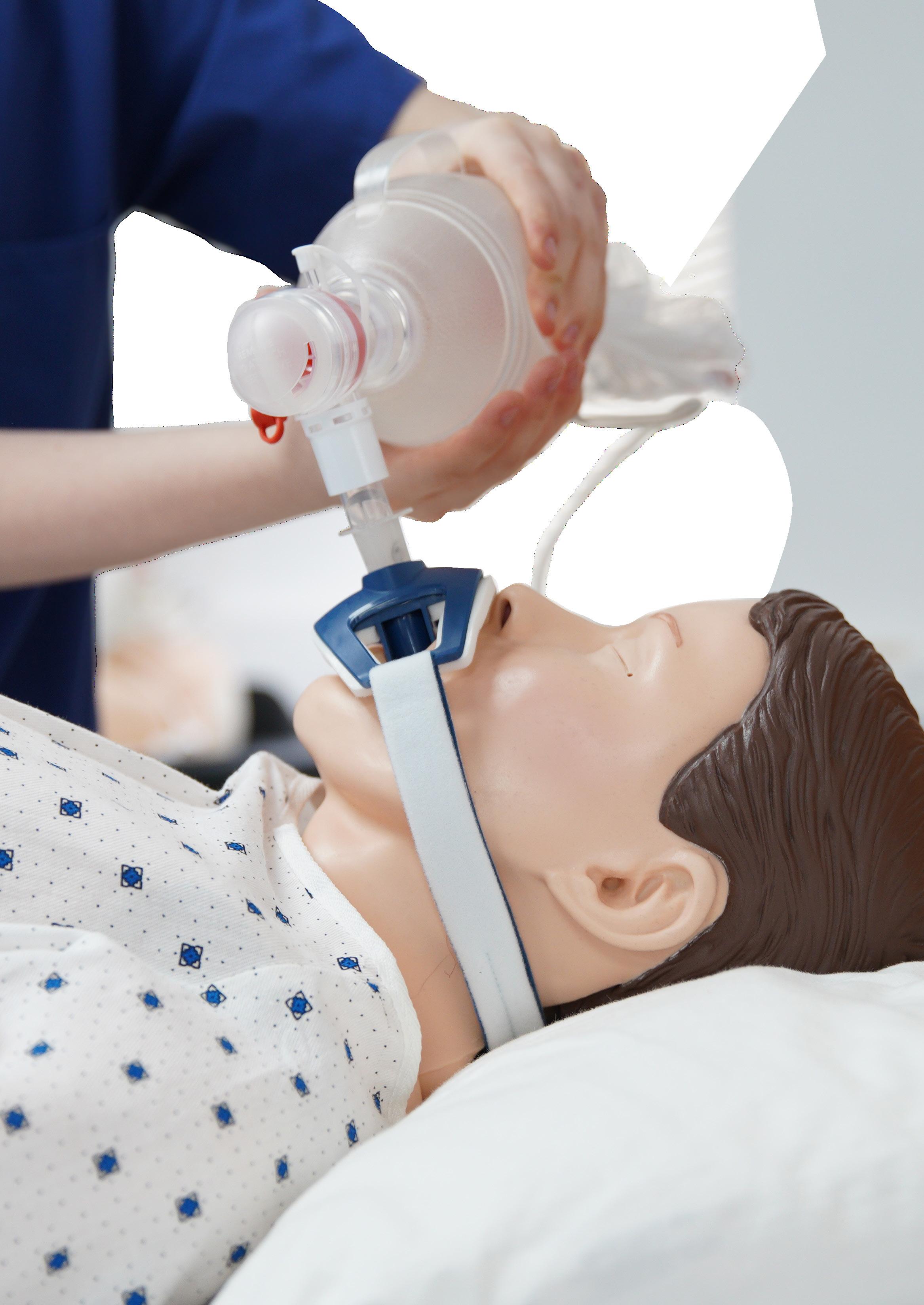
Winner of Yorkshire Learning Providers’ Award for Best Skills
Bootcamp Delivery for Principles of Carbon Capture and Storage
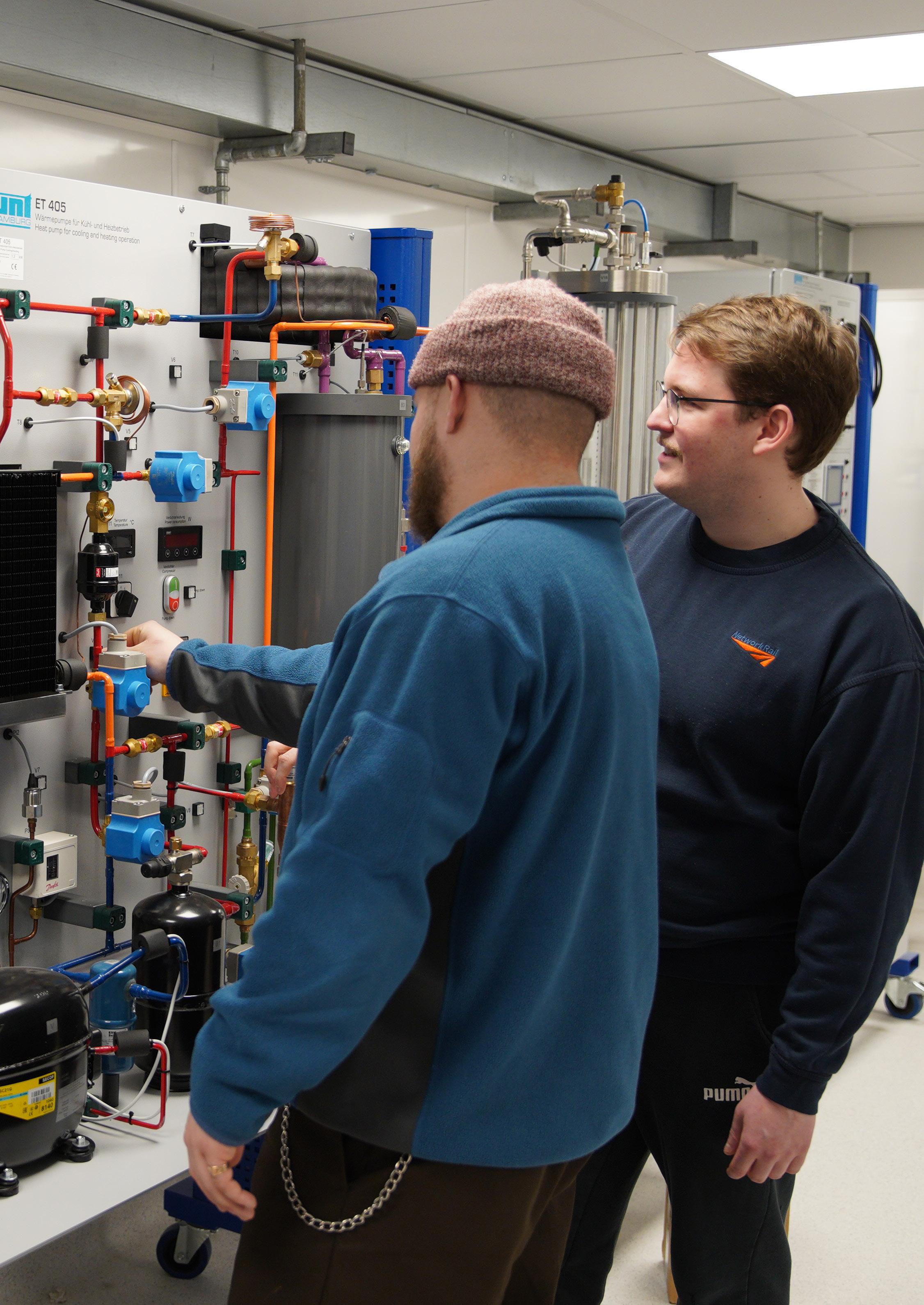
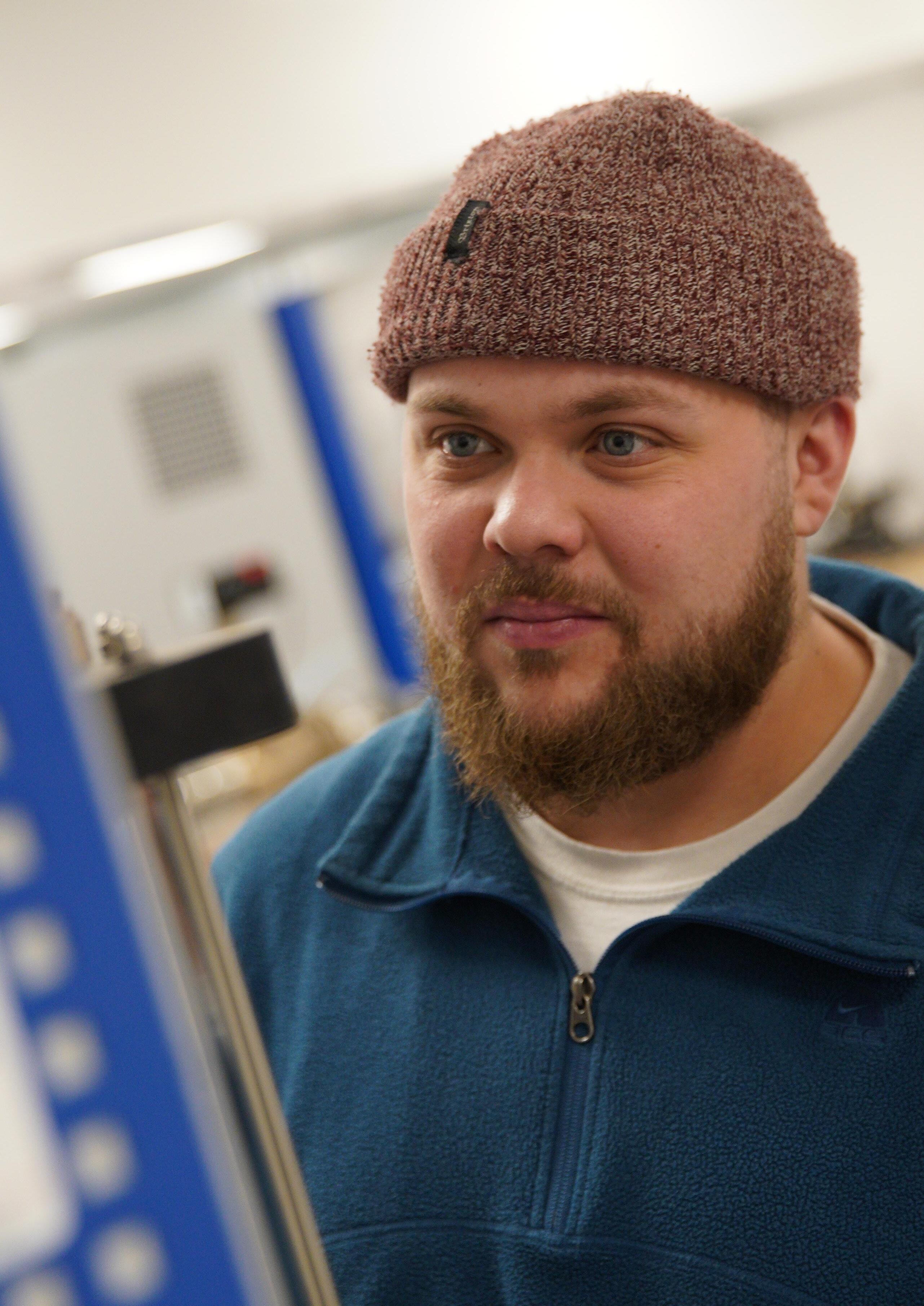
Selby College (part of Heart of Yorkshire Education Group) has invested heavily in its engineering department to create a de-carbonisation laboratory which meets the skills needs of the both the engineering and low-carbon sectors.
The laboratory is fitted out with state-of-the-art Gunt training rigs which simulate carbon capture and heat recovery solutions. To recreate the carbon capture process, the college has a gas absorption rig which students can use to remove CO2 from an emission source using the same method which is being pioneered in large scale carbon capture plants across the world. The laboratory also has a range of training rigs which simulate various methods for heat recovery (essentially capturing waste heat and putting it to a useful purpose) such as solar thermal, air and ground source heat pumps and heat exchangers.
Using LSIF funding, the college has invested in its health and social care provision, buying clinical manikins which enable students to practice various medical interventions in a controlled environment. The college has created a simulated hospital ward for students to train in and has plans to extend this facility to include a care home setting. VR headsets and software have been purchased so that the college can create immersive content to further aid in practical teaching in health and social care and to take students to environments which would be difficult to see in the real world.

LSIP PRIORITIES MET:
• Enable employers and individuals to access the technical skills they need to increase productivity, respond to change and adapt to emerging technology in key sectors.
• Review existing provision to ensure that courses reflect progress in technology and reduces carbon emissions.
• Enable employers and indidivuals to access the technical skills they need to increase productivity, respond to change and adapt to emerging technology.
• Focus on skills related to occupations in the highest demand.
PRIORITY SECTORS:
• Digital and technology
• Health and social care
• Engineering and manufacturing
CROSS CUTTING THEMES:
• Innovation
• Low carbon
• Green skills
• Emerging technology

Our LSIF activity encompasses a dual focus on digital innovation and health and social care, building upon the groundwork laid by the Strategic Development Fund (SDF). Our mission is multifaceted, aiming to tackle carbon reduction in various sectors, particularly sustainable construction, through comprehensive training, up-skilling, and re-skilling initiatives tailored to meet the evolving demands of future jobs in our locality.
Thanks to funding support, we’ve implemented cutting-edge smart home technologies within our educational facilities, integrating low-carbon heat sources such as solar, wind, and ground/air systems. This not only aligns with our sustainability objectives but also provides hands-on learning opportunities for students.
Furthermore, we’ve invested in an immersive classroom environment, designed to deliver interactive and engaging educational experiences spanning diverse curriculum areas. This innovative set-up fosters dynamic learning and encourages exploration across multiple subjects.

LSIP PRIORITIES MET:
• CPD for employees in the education sector.
• Enable employers and individuals to access the technical skills they need to increase productivity, respond to change and adapt to emerging technology in key sectors.
• Review existing provision to ensure that courses reflect progress in technology and reduces carbon emissions.
• Focus on skills related to occupations in the highest demand.
PRIORITY SECTORS:
• Digital and technology
• Construction
• Health and social care
• Engineering and manufacturing
CROSS CUTTING THEMES:
• Transferable skills
• Innovation
• Low carbon
• Green skills
• Emerging technology


“
The LSIF allowed us to deliver some valuable free courses for adults working in the healthcare sector providing them the opportunity to upskill and complete CPD activity. We are going to continue running these sessions to support more healthcare workers.
“


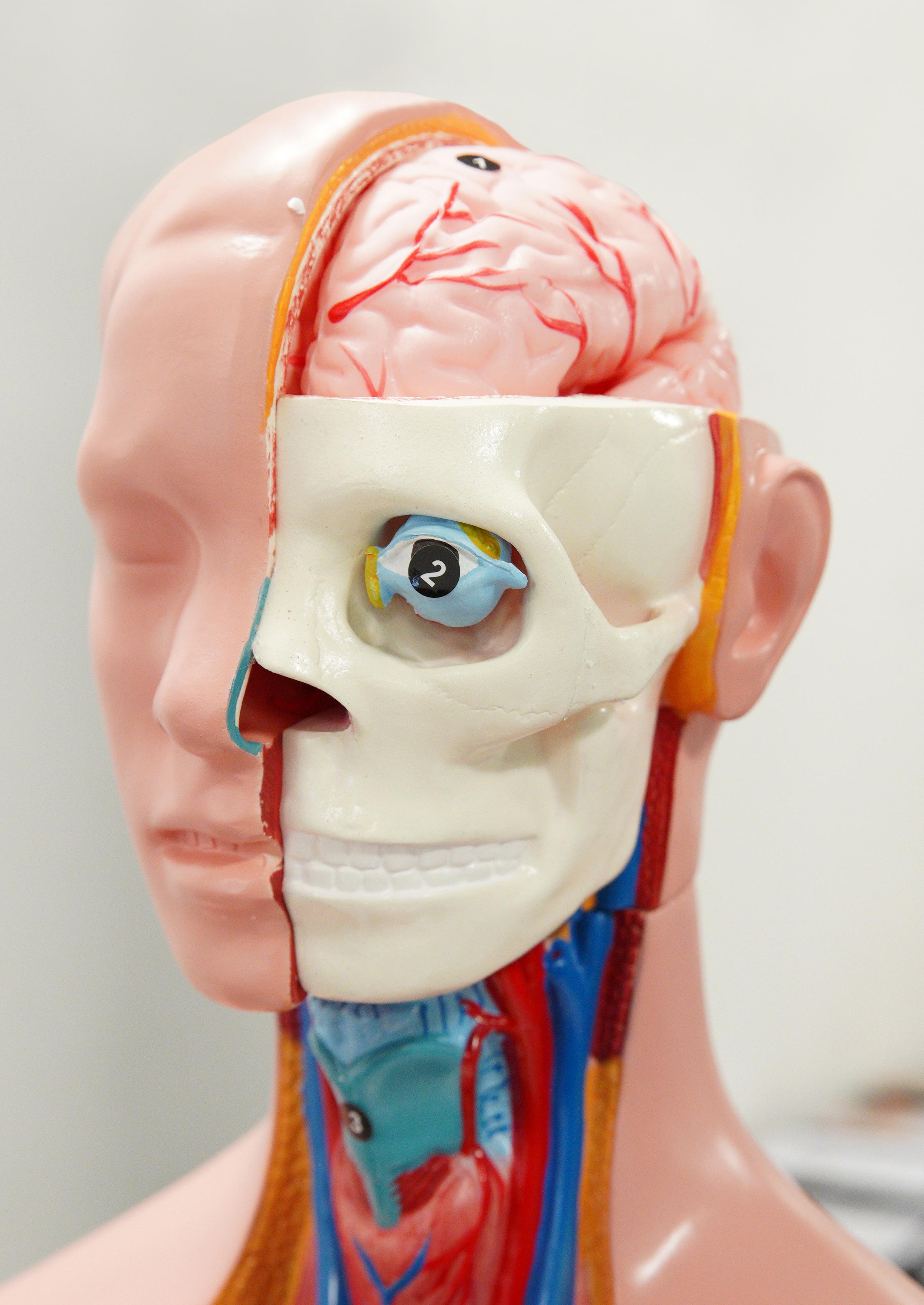
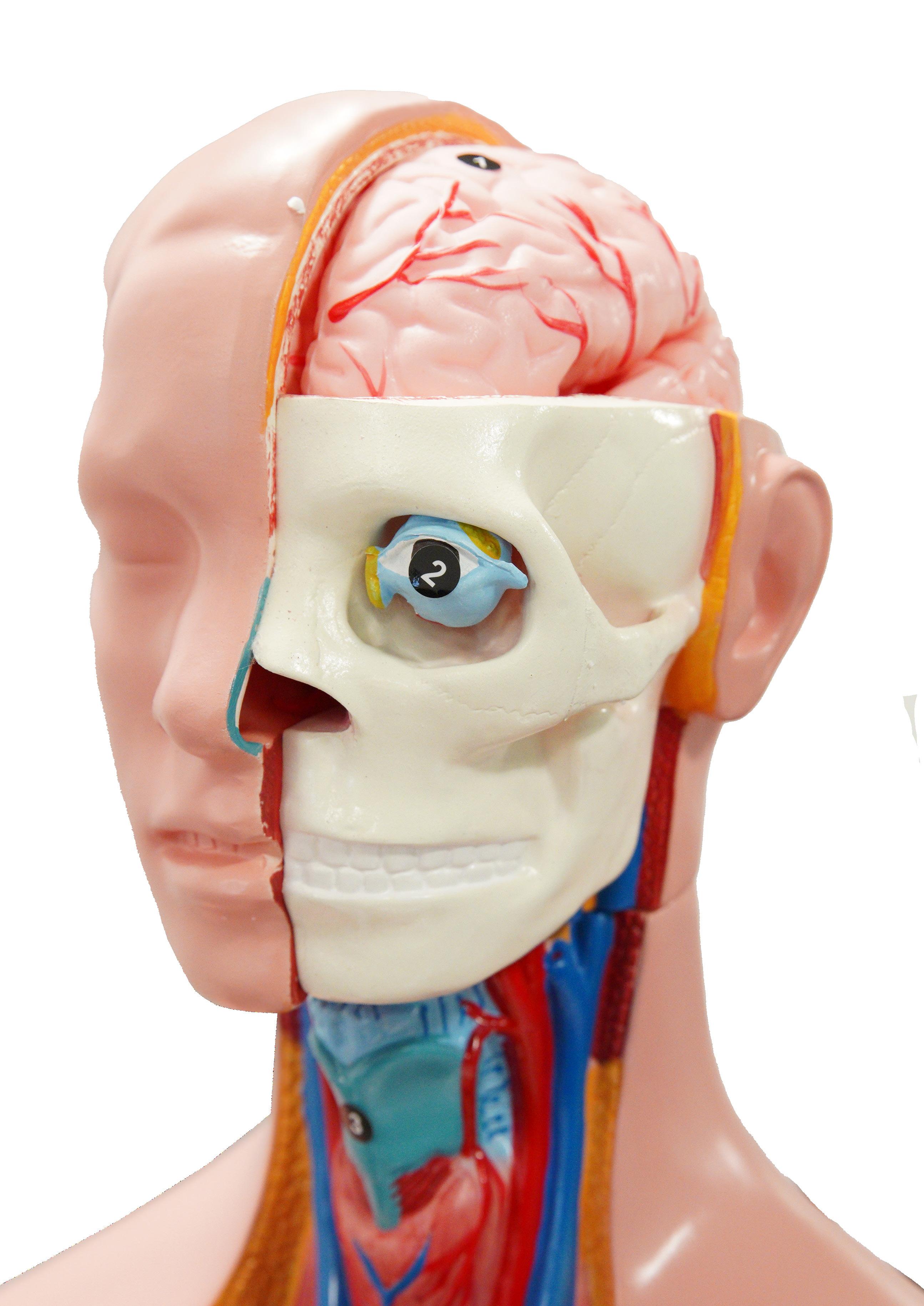
York Learning has invested in both practical resources and virtual / augmented reality resources for our main project areas of health and social care and digital skills.
We are using these resources to engage with local people in the community at events such as roadshows and job fairs.
This engagement opens up a dialogue about transferable skills, job opportunities in sectors such as care and helps to break down the mystique around technology. This leads to increased confidence as a learner, more knowledge of digital skills and practical skills for health and social care employment.
We also plan to use our artificial reality (AR) / virtual reality (VR) equipment to enhance our provision through mindfulness and confidence building activities to help the people of our region who have anxiety about learning, who have suffered trauma, who need additional support to access our programmes or simply to begin to gain confidence to embrace the next steps.


LSIP PRIORITIES MET:
• Enable people from all backgrounds to; access skills provision to support progression in work, transition to new career opportunities, gain employability and technical skills required by employers,fulfill their potential at work.
• Target support to those in low wage, low skill jobs which are at risk of automation to enable people to build a portfolio of transferable skills.
• Initiatives for 50+ people in priority sectors to retain talent.
• CPD for employees in the education sector.
PRIORITY SECTORS:
• Digital and technology
• Health and social care
CROSS CUTTING THEMES:
• Transferable skills
• Rurality
• Collaboration
• Low carbon

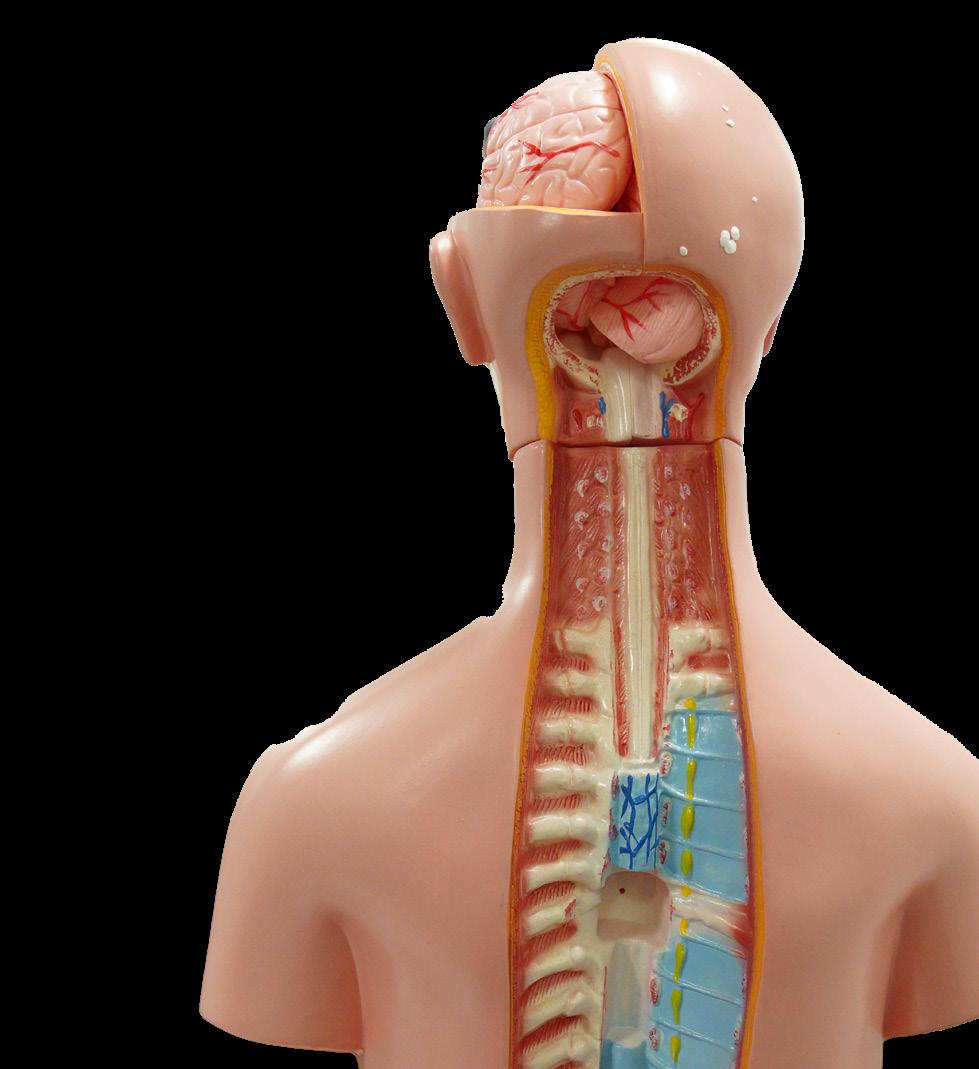
Yorkshire Learning Providers conducted two projects using LSIF funding to further understand the local skills needs of the health and social care sector and to scope out a digital skills partnership.
Both projects have resulted in reports which are publicly available and provide deep dive provision mapping to establish good practice, identify gaps, set out solutions and provide recommendations for future activity.
The health and social care report builds on work done in the mobilisation phase of LSIF to provide granular information to colleges on skills needs of the care sector (including domiciliary care). The report includes findings from a suite of employer forums conducted across the area, desktop research and an analysis of facilities and provision. The report also suggests course content reflecting employer needs.
The digital skills report is a thorough breakdown of the following;
• Analysis of existing digital skills partnerships and best practice.
• Provision mapping of digital skills provision and facilities.
• Feedback from a series of round tables.
LSIP PRIORITIES MET:
• Deep dive provision mapping against priority sectors to establish good practice, avoid duplication and identify gaps.
• Support the development of a digital skills partnership.
PRIORITY SECTORS:
• Digital and technology
• Health and social care
CROSS CUTTING THEMES:
• Collaboration
• Innovation
• Emerging technology
• Identification of key gaps, issues and opportunities.
• Data on the current job market for digital skills.
• Recommendations for a future digital skills partnership in York and North Yorkshire.





York St John University (YSJ) offers a range of Degree Apprenticeship programmes tailored to meet the diverse needs of today’s workforce.
• L6 Chartered Manager Degree Apprenticeship
• L7 Senior Leader Degree Apprenticeship + MBA Top Up
• L6 Project management Degree Apprenticeship
• L6 Data Scientist Degree Apprenticeship
• Leadership and management programmes
They are designed to transcend sector boundaries, catering to industries such as business, hospitality, tourism and STEM sectors.
Central to YSJ’s mission is fostering connections between businesses and individuals, facilitating skills development opportunities through apprenticeships and placements at all levels.
The University of York offers a comprehensive offer to business, including a large portfolio of non-accredited and Chartered Management Institute (CMI) leadership and management programmes, focusing on topics including strategic leadership, management development, coaching and innovation.
In addition, The University of York is able to deliver a number of courses focused on specific expertise such as health, AI, systems safety and green skills.
CU Scarborough, part of Coventry University Group, offers career-focused higher education courses for mature learners and school leavers. Our course subject areas are designed to reflect the local sector priorities. Students can choose courses in the areas of: Nursing, Cyber Security,
Computing Science, Health and Social Care, Business Management and Leadership, Public Health and Community Studies, and Electromechanical Engineering.
Learners are able to start at a level that suits their needs with a range of Access to Higher Education diplomas, foundation year courses, HTQs, degree apprenticeships and degree-level courses available.
LSIP PRIORITIES MET:
• Increase apprenticeships (especially higher and degree level).
• Ensure the modes of provision of training meet business need.
• Develop new provision accessible to small and micro-businesses.
• Skills related to occupations in the highest demand.
• Increase career advice, information and guidance for all ages to build and retain talent in the workforce.
• Increase provision available at L4 and L5 in modular format in priority sectors.
PRIORITY SECTORS:
• Digital and technology
• Engineering and advanced manufacturing
• Health and social care
• Visitor economy
CROSS CUTTING THEMES:
• Low carbon
• Innovation
• Green skills
• Transferable skills
• Emerging technology

Our partners’ work also contributes enormously to delivering the LSIP.
The Skills Bootcamps, for example, delivered by York and North Yorkshire Combined Authority, offer fully-funded, flexible courses of up to 16 weeks, giving those who take part the opportunity to build up specific technical skills which align with local industry needs.
The Yorkshire and Humber Institute of Technology (YHIoT) is a partnership of seven colleges, two universities and numerous local businesses. Its focus is on Level 4 qualifications and above in technical subjects and with a focus on providing people with tech-driven education that meets the needs of industry.
Majoring on immersive tech, the YHIoT has done much to drive innovation in virtual reality resources in the educational world as well as increasing the higher level skills offer for Science, Technology, Engineering and Maths (STEM) subjects.
The UK Shared Prosperity Fund commissioned by City of York Council and North Yorkshire Council deliver a raft
LSIP PRIORITIES MET:
• Support people to use their transferable skills to secure jobs in priority sectors.
• Develop new provision accessible to small and micro-businesses.
• Ensure the modes of provision of training meet business need.
• Prioritise accessible technical and digital skills development at all ages.
• Increase apprenticeships (especially higher and degree apps where there is demand).
PRIORITY SECTORS:
• Digital and technology
• Agri-skills
• Engineering and advanced manufacturing (including rail)
• Construction
• Health and social care
• Visitor economy
CROSS CUTTING THEMES:
• Low carbon
• Innovation
• Collaboration
• Green skills
• Transferable skills
• Rurality






